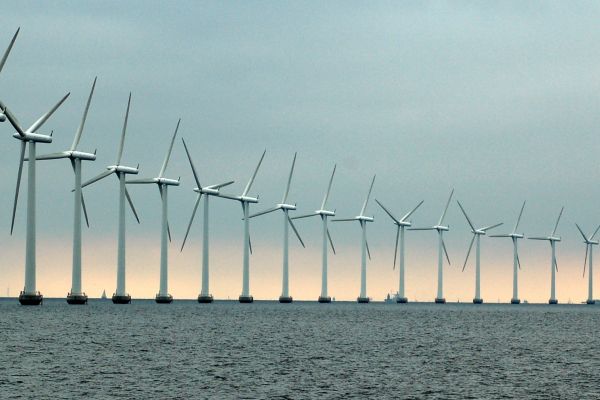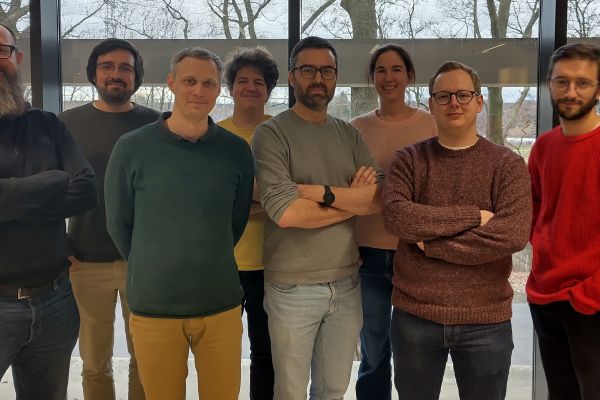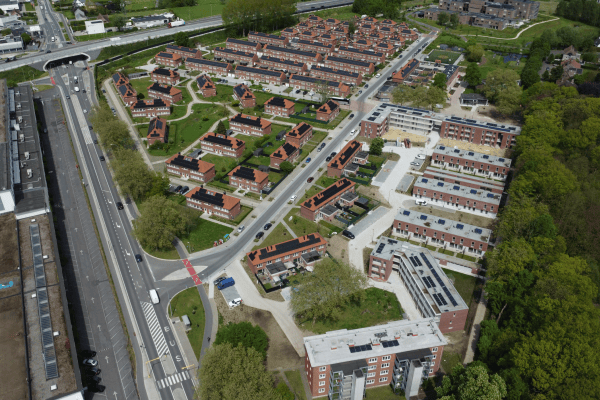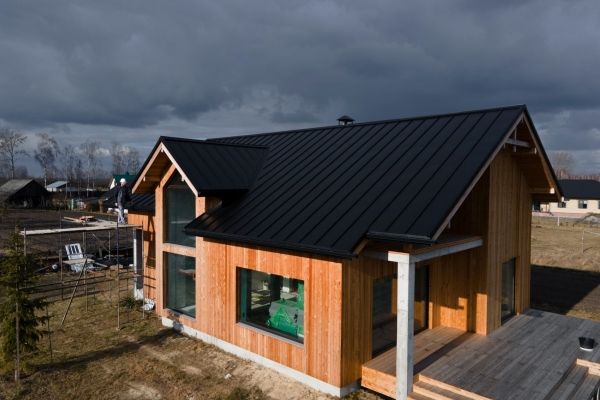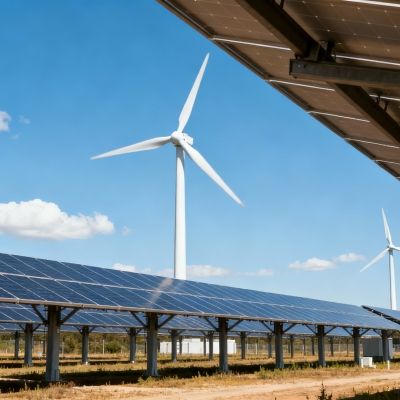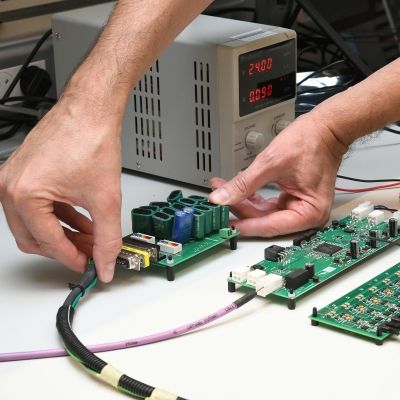Recap: #IEADHC2025 in Genk
From 7 to 10 September 2025, the EnergyVille campus in Genk, Belgium, played host to the 19th International Symposium on District Heating and Cooling (DHC2025). Organised by VITO/EnergyVille under the umbrella of the IEA Technology Collaboration Programme on District Heating and Cooling (IEA DHC), the symposium brought together researchers, industry experts, and policymakers from across the globe. It marked another important step forward in building a truly international DHC community.
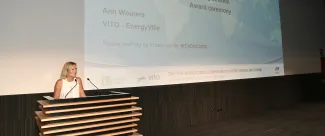
Key take-aways from the symposium:
- District heating and cooling (DHC) is gaining global momentum, with strong regional developments and growing alignment between research, policy and practice.
- Next-generation DHC systems will be digital, low-carbon and user-focused, as confirmed by a wide range of international research contributions.
- Geothermal energy and other sustainable thermal energy sources become increasingly important to both new and existing networks.
- International cooperation and knowledge exchange remain essential, especially to accelerate deployment and standardisation.
- Public partners and local governments play a vital role in implementing DHC solutions and supporting climate-resilient infrastructure.
- A new generation of researchers is stepping up, with award-winning work that blends scientific excellence with real-world impact.
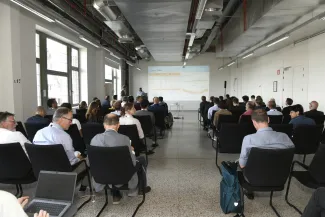
A platform for exchange and collaboration
The conference served as an inspiring platform to exchange knowledge, initiate collaboration and align visions for the future of sustainable heating and cooling. Over the course of four days, participants engaged in dynamic discussions, shared new research findings, and explored tangible avenues for cooperation.
"The success of this edition lies in the richness of the discussions — a combination of strong scientific contributions and open dialogue across sectors," said Ann Wouters, Research Programme Manager Digital Solutions for Energy Systems at VITO/EnergyVille.
Her colleague Dirk Vanhoudt, Research Roadmap Responsible at VITO/EnergyVille, echoed this sentiment: "The momentum to scale up district heating and cooling has never been greater. This symposium confirmed that our international research community is ready to lead that change."
The importance of connecting science, policy and practice was a recurring theme from the outset. Robin Wiltshire, Chair of IEA DHC, stressed the importance of aligning research with policy to accelerate the energy transition: "We have an opportunity to move faster by learning from each other and linking technical know-how to decision-making. That’s where platforms like this symposium make a real difference."
Inge Neven, CEO of VITO, and Bram De Wispelaere, General Manager of EnergyVille, underlined the role of knowledge institutions in supporting system-level change, while Rodrigo Bergers, representative of Vice Minister-President and Minister of Energy of Flanders Melissa Depraetere, reaffirmed the region’s commitment to innovation and climate-neutral infrastructure. Wim Dries, Mayor of the hosting city Genk, stressed the importance of implementation and applied research, areas where the Open Thor Living Lab and frontrunning cities like Genk have a key role to play in validating and showcasing solutions for the energy transition.
Keynotes across continents
A highlight of the programme were the keynote sessions, which offered a global perspective on the state and future of district heating and cooling. Four keynote speakers represented different regions of the world — Europe, Asia, and North America — bringing their regional insights to a broader global conversation.
Robin Wiltshire, Chair of IEA DHC and Director at Heatmatters Ltd (UK), shared reflections on the evolution and outlook of heat networks in Europe. He emphasised the urgency of building inclusive strategies that integrate education, industry, and policy.
Jianjun Xia, Associate Professor at the Building Energy Research Center, Tsinghua University (China), presented innovative applications of industrial waste heat integration, long-distance DH networks and cutting-edge research in building energy systems. His talk highlighted the scale and speed of innovation taking place in East Asia.
Michael Ahern, Director of Business Development at Ever-Green Energy LLC (USA), discussed community-focused energy systems in the US, offering insights into stakeholder collaboration and system integration.
David Woodson, Executive Director of Campus Energy, Utilities and Operations at the University of Washington (USA), reflected on decarbonising university campuses — drawing connections between system-level planning and local leadership.
Together, their contributions offered a comprehensive view of the very local character of this global business.
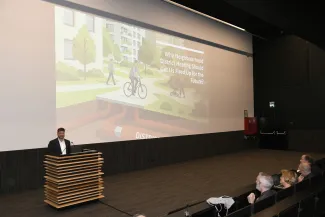
Scientific themes and trends
The scientific programme offered a broad and in-depth view of ongoing developments in the DHC field. Throughout the symposium, attention was paid to the full life cycle of DHC systems, from planning and design, to operation, modernisation and user engagement.
Geothermal DHC networks, sometimes in combination with thermal source networks, emerged as a major focus within current research. Numerous contributions also addressed the integration of diverse thermal sources, including waste heat, solar, geothermal and ambient energy, particularly in the context of hybrid networks and seasonal balancing, both in new and existing DHC networks.
Several sessions explored technological innovations to improve and modernise legacy networks, with the goal of increasing their reliability, energy efficiency and cost-effectiveness. Digitalisation plays a crucial role in this transition. Triggered by the growing availability of high-resolution measurement data in DHC systems it enables smarter planning, design, operation and maintenance. Smart control systems, real-time monitoring, and predictive maintenance were prominent in the discussions, alongside an increasing focus on standardised data handling, scalability and interoperability
Sustainability considerations, such as lifecycle environmental impact and circular system design, were central to many contributions. In line with the social dimensions of the energy transition and community building also emerged as key themes across different stages of the life cycle of DHC networks.
The strong alignment between the scientific programme and the state-of-the-art in DHC-research was evident throughout the symposium, a testament to collective progress and shared priorities of the international DHC research community.
Recognising innovation and talent in DHC research
DHC2025 celebrated both emerging talent and established excellence with two award initiatives that underscore the sector’s scientific depth and forward momentum. The DHC+ Student Awards, powered by EuroHeat & Power, honoured exceptional student research, while the IEA DHC Best Paper Awards spotlighted cutting-edge contributions to the broader field of district heating and cooling.
- DHC+ Student Awards
Three outstanding young researchers received the DHC+ Student Award, in recognition of innovative and high-quality research with a clear contribution to the sector: Gianni Martinazzoli, Università degli Studi di Brescia, Italy- Sajedeh Roustaei, Politecnico di Milano, Italy
- Anna Vannahme, TU Munich & Ingolstadt University of Applied Sciences, Germany
As chair of the jury Stefan Holler, HAWK University of Applied Science in Göttingen, Germany, remarked:"The winning contributions stood out not only for their scientific rigour, but also for their practical relevance and originality. It’s exciting to see such strong work from young researchers who are clearly shaping the future of the DHC sector."
-
IEA DHC Best Paper Awards
The IEA DHC Programme also awarded five outstanding papers that demonstrated exceptional innovation, relevance, and technical quality in district heating and cooling research:
- Natalia Kozlowska (University of Liège)
- Qinjiang Yang (Danish Technical University / VITO / EnergyVille)
- Mohammadreza Kolahi (University of Geneva)
- Hans Hoes (Terra Energy)
- Jan Eric Thorsen (Danfoss)
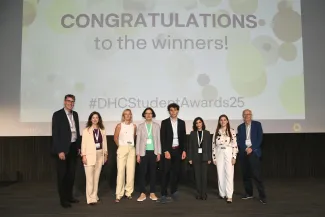
Shared priorities and future directions
While the sessions generated rich academic exchange, the symposium also produced several shared priorities and action points:
- Strengthen international collaboration to address systemic energy challenges.
- Accelerate the digital integration of DHC networks.
- Keep system design focused on end-user needs and low-carbon outcomes.
- Invest in early-career researchers and build structured support for young talent.
- Promote scalable, flexible, and cross-sectoral system innovation.
This publication aims to reflect the breadth and depth of the scientific discussions that took place on the EnergyVille campus in Genk. It also serves as a reminder of what is possible when a committed community comes together to share insights and build partnerships. The next International Symposium on District Heating and Cooling will take place in Linz, Austria from 5 to 8 September 2027 — a moment we already look forward to, and where the outcomes of this year’s conversations will hopefully inspire new research and shared achievements.
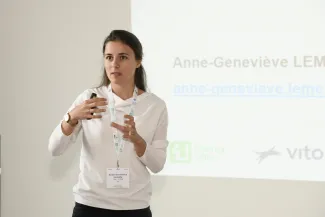
Explore the Insights from DHC2025
For all registered participants
All presentations and posters from DHC2025 are available in the online conference database of the International District Energy Association (IDEA).
For anyone interested - not just attendees
A curated selection of contributions has been developed into full open-access papers, published by Springer Nature Lecture Notes in Networks and Systems as part of the official DHC2025 conference proceedings. This publication will be available both online and in print and can be accessed freely by anyone interested in the latest research and developments in district heating and cooling.



